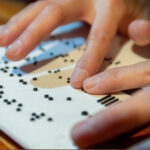International Brain Teaser Month is in January. We’ve got an arsenal of puzzles and hope you’re ready to go. What has a ring but no finger? What is harder to catch the faster you run? If puzzles like these make your brain jump for joy, imagine an entire month of mental stimulation.
Everyone loves a great brain teaser. Few things can compare to the utter satisfaction after solving a complex riddle. We should indulge more often, since brain teasers are exercises for the mind.
People tend to focus on keeping the body healthy. But what are the ways we can keep our wits sharp? Mental stimulation is just as crucial to our health. Puzzles and riddles are known to prevent cognitive decline, especially as we age. International Brainteaser Month hopes to encourage everyone to challenge their minds more often.
History of International Brain Teaser Month
Testing the brain’s powers isn’t a new concept. We have ample precedents from literature and mythology demonstrating how solving complex riddles determines the worthiness of individuals.
In the 5th century, Sophocles wrote: “Oedipus, The King” — one of the most memorable pieces of literature in history. In this tragic story, Oedipus encounters the monstrous Sphinx guarding the gates of Thebes. Travelers could pass only when they solved her riddle: “What goes on four legs in the morning, two legs at noon, and three legs in the evening?” Failure meant death for the traveler. Oedipus correctly answers “a human.” As babies, humans crawl on all fours, walk on two legs as adults, and walk with a cane (three legs) when they’re old.
In “The Merchant of Venice,” William Shakespeare dreams up a riddle for his characters to solve. Portia’s father constructs a puzzle to ensure his daughter marries a worthy suitor. The suitors must choose from three caskets that contain clues to whether Portia’s portrait lies inside.
Lucky for us, International Brainteaser Month isn’t as exacting as literature in its expectations. All it asks of you is a month of mental stimulation to boost your brainpower.
Like any muscle in our body, the brain needs constant exercise to stay sharp and strong. Brain teasers are excellent ways to exercise the mind. They aid memory and sharpen our focus. Puzzles and games can help us see things differently. Plus, they’re super fun. Keeping our brains active can help reduce the risk of dementia as we grow older.
During International Brain Teaser Month, give your brain the mental stimulation and challenge it needs every day. Solve a crossword puzzle. Tackle some Sudoku. Brain teasers are excellent for those grey cells. They help us develop new ways of thinking. Remember to change up the tasks regularly so that your brain is always on its toes.
International Brain Teaser Month FAQs
What is a brain teaser?
A brain teaser is a puzzle, riddle, problem, or question usually difficult to solve. Brain teasers are exercises designed to keep the mind active. They don’t involve anything serious — most are hypothetical or even philosophical.
Do brain teasers make you smarter?
Brain games help the mind stay stronger and sharper. Unfortunately, there’s no evidence to prove they make someone smarter.
What has a ring but no finger?
The answer is a telephone. Here, ‘ring’ implies the sound a phone makes and not the ring people wear on their fingers.
International Brain Teaser Month Activities
Plan a daily mental challenge
Find the forgotten Rubix Cube and attempt solving it. Head to the store and buy a book of brain teasers. On weekends, invite friends over for a game of Scrabble. Remember to take a few minutes each day to work those brain muscles.
Solve puzzles you typically wouldn’t
Intimidated by math? Not a big fan of word games? Surprise your brain (and yourself) by attempting more of the things you don’t necessarily enjoy. The idea is to challenge the brain. And for that, you need to move out of your comfort zone.
Create online challenges
If friends and family live far away, turn to your phones. Send a virtual challenge. Play puzzles online with friends. Many apps allow you to play at your own pace – which is ideal for when life gets busy.
5 Facts About Scrabble That Will Blow Your Mind
Scrabble was an architect’s brain-child
Alfred Mosher Butts, a New York City architect, created the earliest version of Scrabble in 1933.
Scrabble wasn’t the intended name
Butts first went with “Lexico” and later “Criss-Cross Words” before his partner James Brunot came up with “Scrabble” in the late 1930s.
The game hasn’t changed
From the squares and the tiles to the distribution, Scrabble hasn’t changed over the years and remains popular.
You can yell 'Bingo' during Scrabble
A Bingo moment in Scrabble is when players use all seven tiles.
The top winning word
Out of all the words in existence, remember that 'Qi' is a top winning word in Scrabble.
Why We Love International Brain Teaser Month
It keeps us gainfully occupied
Time spent on brain teasers is time well-spent. We love how the hours can fly by when tackling a Sunday crossword puzzle or Sudoku.
More time to bond with loved ones
Puzzles and brain teasers don’t have to be solitary activities. Getting everyone involved is half the fun of it. Boardgame nights, trivia nights — the more heads together, the better.
Time away from screens
Yes, we love memes. But it’s time to rediscover a world outside social media. Brain teasers are infinitely better for us than perennial doom scrolling.
International Brain Teaser Month dates
| Year | Date | Day |
|---|---|---|
| 2025 | January 1 | Wednesday |
| 2026 | January 1 | Thursday |
| 2027 | January 1 | Friday |
| 2028 | January 1 | Saturday |
| 2029 | January 1 | Monday |


















































































































